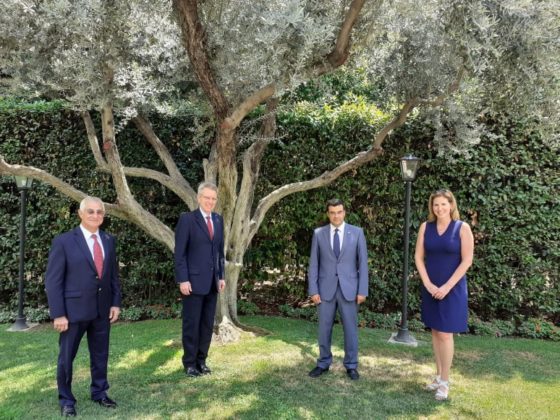Sister Cities – The Next Step in Greek-American Relations?

Alexander Billinis
Sister Cities (or Town-Twinning) Programs are an excellent and innovative way to build local-to-local links between communities in different countries, complimentary yet independent of the nations’ international relations. Trade, cultural, ethnic, or historical links might serve as the impetus for (or the result of) fostering a Sister Cities relationship, but at its core it represents a public/private initiative from two sides to form a relationship. From there, the relationship is what both sides want to make of it.
I became familiar with the Sister Cities Program while living in Chicago, which has strong relationships with any number of cities I know very well, most notably Athens and Belgrade. The strong ties between the two Balkan capitals and Chicago are fostered by several hundred thousand Chicagoans of Greek and Serbian descent, but on the back of this strong ethnic foundation any number of cultural, economic, academic initiatives can be and have been developed.

At the US Embassy in Athens. From left, Mayor George Koukoudakis, Ambassador Geoffrey R. Pyatt, Tarpon Springs Mayor Chris Alahouzos and Cynthia Harvey, Public Relations Director US Embassy. PHOTO: GEORGE KOUKOUDAKIS. Photo furnished by George Koukoudakis, Hydra mayor
As we are all aware, next year Greece celebrates its bicentennial, seminal moment in any nation’s history, and many of us in Greece and the Diaspora are actively involved in activities designed to commemorate and to contextualize this important event in world history, one which was inspired in part by the success of the American Revolution a few decades prior to 1821. With this in mind, as a proud Hydriot, I became actively involved in Hydra’s 2021 Committee; the island’s initiatives at home and abroad to commemorate the vital role of this tiny island deserve our praise and support, and it got me to thinking.
I am a devotee of Tarpon Springs. I have only visited twice, the last time in 2019 to give a lecture in nearby Clearwater, but the town grabbed hold of me as an authentic Greek venue, seaside, caiques, and even a beautiful shrine straight out of the Aegean. It is easy to fall in love with the place and I wrote an article about my newfound love for the town and the wider region of the west coast of Florida, which is rapidly becoming one of the key centers of gravity for Greek America.
Much of 2020 has been spent at home in front of a screen. On one such occasion, after finishing teaching yet another online class via Zoom, I approached Mayor George Koukoudakis of Hydra with the idea of twinning Hydra with Tarpon Springs. Some of the first Greeks who immigrated to Tarpon Springs were Hydriots, and the small seaside Florida town, like Hydra, is beloved both of Greek Americans and tourists. It made sense to me, and it did not take the mayor long to become interested.
The next day, I placed a phone call and an email to Tarpon Spring’s Greek American mayor, Chris Alahouzos, and I received a call back the next day. Fortuitously a fellow Hydriot divides his time between Hydra and Tarpon Springs, and he did his part to move the process forward. Both mayors are hands-on, dedicated public servants, and the agreement to pursue the relationship passed both municipal councils. This summer, on the grounds of the US Embassy in Athens, the mayors of Hydra and Tarpon Springs met to discuss their Sister Cities agreement. The formal signing will take place in both towns, hopefully in 2021 once pandemic conditions have subsided.
Certainly, every situation is different, and both municipalities are relatively small and have the good fortune to be run by switched-on mayors. However, I am certain that the process could be repeated in so many locations throughout the US, places with a very active Greek community with ties to communities back in Greece. This coming year, as we celebrate a Revolution that was inspired by the American Revolution, with many active and passive American participants in that bygone era, it seems only logical that a great way for local Greek-American communities to honor both countries is to build these local-to-local relationships.
From there, the only limits are that of the human imagination. Cultural, educational, business, and other contacts may flourish thereafter, with a civic blessing. It provides a great opportunity for real places and people to learn about one another, removed from the halls of foreign policy in Washington DC or Athens. It is, further, something that local people can do, rather than relying on the Greek American advocacy organizations in Washington DC which claim to represent us. I started this process for Hydra and Tarpon Springs “off the side of my desk,” and so can others.
As Americans and Greeks, we owe it to both countries, and the Bicentennial of the Greek Revolution is the perfect time to do it. It starts with an idea and a phone call.











0 comments